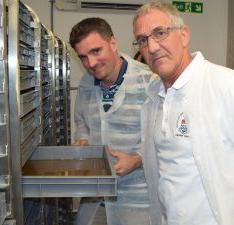Justice Ingrid Mangatal has rejected the application by activists in the Cayman Islands to overturn a decision of the National Conservation Council (NCC) regarding the controversial release of millions of genetically engineered mosquitoes in Grand Cayman.
However, this does not mean the bio-engineered insects will be released in the Cayman Islands just yet. In the absence of her written ruling setting out the basis for her decision, the attorneys representing the applicants asked for a further stay to give them a chance to appeal her decision once they see the ruling.
At a judicial review hearing on Monday morning, the judge agreed to a further 24-hour stay until she presents her decision in writing on Tuesday afternoon, when the applicants’ legal team is expected to begin a formal appeal process and a further stay application.
Although Justice Mangatal did not give any details, she said that after considering all of the matters and the role of the court, none of the grounds on which the application had been based had been made out.
Local activists had filed the legal action to have the NCC decision overturned and to prevent the release because they believed that it was flawed and unlawful. The group claimed that there was an inadequate public consultation process; that the NCC failed to carry out an independent assessment as the decision was based purely on information coming from Oxitec, the company that produces the genetically modified (GM) mosquitoes; and that the project was putting the community and environment at risk.
Following the short hearing, Dr Bill Petrie, the head of the Mosquito Research and Control Unit (MRCU) said, “Naturally, we are pleased that the judicial review has been essentially refused and the grounds not made out, however there is another stay until 26 July and there is notice of an appeal, so really we have to wait and see what happens tomorrow.”
Petrie said the concern now was that the current weather conditions were ideal breeding for the Aedes aegypti and the longer the GM release is halted, the more pressing the public health issue becomes.
As the case was adjourned, neither party mentioned costs in the case. (CNS)














